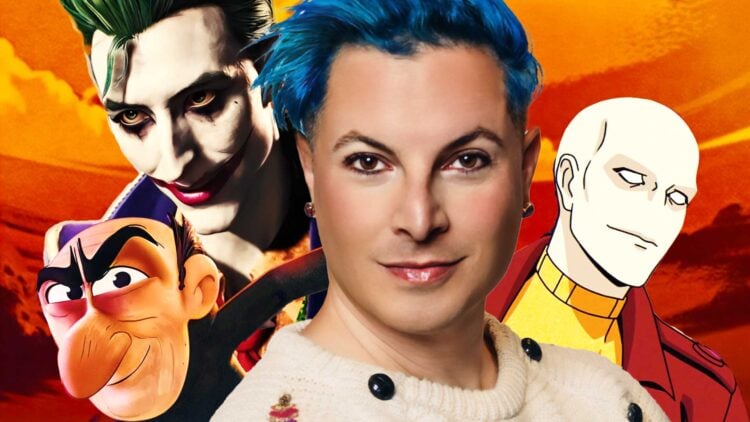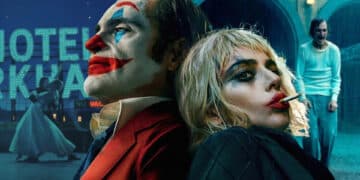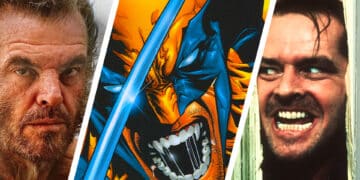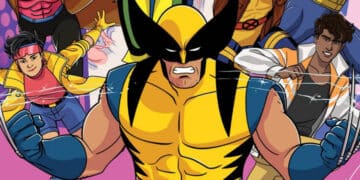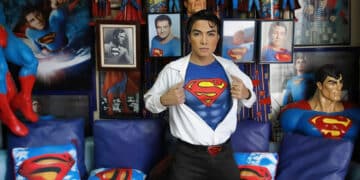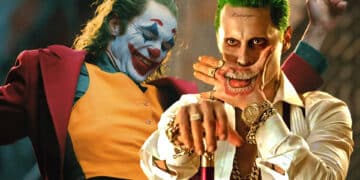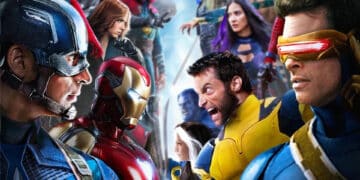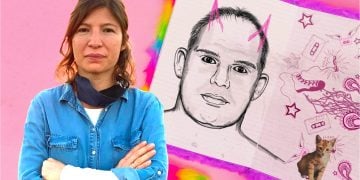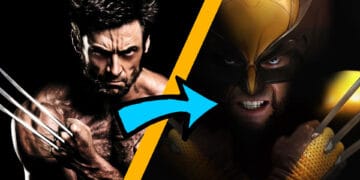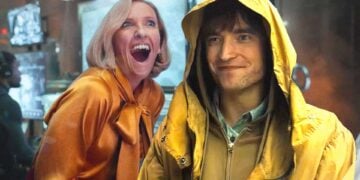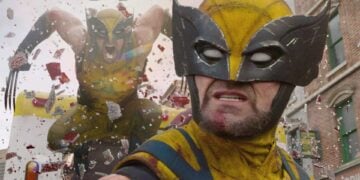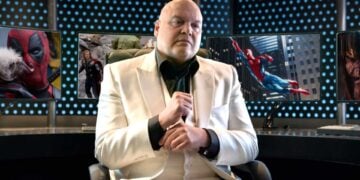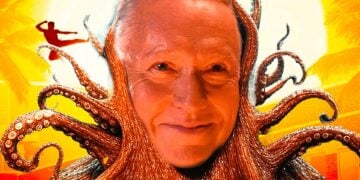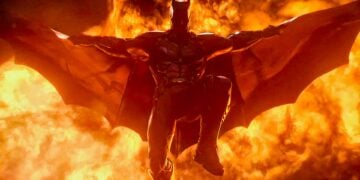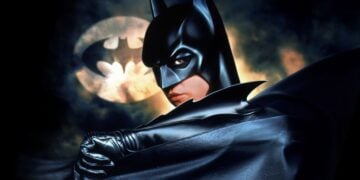In the world of voice acting, JP Karliak continues to build a formidable legacy, having played characters like Morph in X-Men ’97, Joker in Suicide Squad: Kill the Justice League, Razamel and Gargamel in Smurfs, and Boss Baby in The Boss Baby: Back in Business.
Fortress of Solitude caught up with Karliak to talk about how the actor secured dual roles in Smurfs, what lies in store for Morph in X-Men ’97, the challenge of following Mark Hamill as the Clown Prince of Crime in Suicide Squad: Kill the Justice League, and Karliak’s non-profit academy QueerVox.
Fortress of Solitude: Congratulations on your dual role in Smurfs. Gargamel has had some incredible actors in the past, from Paul Winchell to Hank Azaria and Rainn Wilson. What conscious choice did you make in approaching the voice of Gargamel for Smurfs?
JP Karliak: I got Razamel, Gargamel’s brother, first. I was brought in along with a group of other workhorse voice actors at the very beginning of the process to do what’s called scraps, which is basically laying down an audio track that they can do storyboards, script rewrites, and all sorts of stuff to before they bring in celebrities and high-profile people who’ll be hired later. I was asked to read Razamel at the beginning, and I was brought back continuously throughout the process as they were still making tweaks. Like, “Yeah, we still haven’t found the other Razamel yet, but we’ll keep bringing you in until we do.” Eventually, the executives just thought, “Let’s just keep him.”
Then, about several weeks into that recording, they wanted to hear a scene with Razamel and Gargamel talking to each other, and they were like, “Oh, do we have the track with Gargamel talking?” And they’re like, “Oh no, I don’t know where that is.” And I’m like, “Do you just want me to do it?” So, I just did both voices back and forth, and they were very impressed. Eventually, that led to me getting both parts. But when I was choosing the initial voice for Razamel, I was thinking of Paul Winchell’s portrayal of Gargamel – the classic one we know from being kids. And I was like, “Okay, so if that’s what Paul Winchell sounded like, then Razamel should be something different from that,” and I went with that. So, when I booked Gargamel, then I’m like, “Okay, well, then I have to do the Paul Winchell version to keep it in line.” Yeah, it’s not an exact soundalike, but it definitely pays homage to what Paul was doing with maybe a little bit of Hank Azaria sprinkled in.
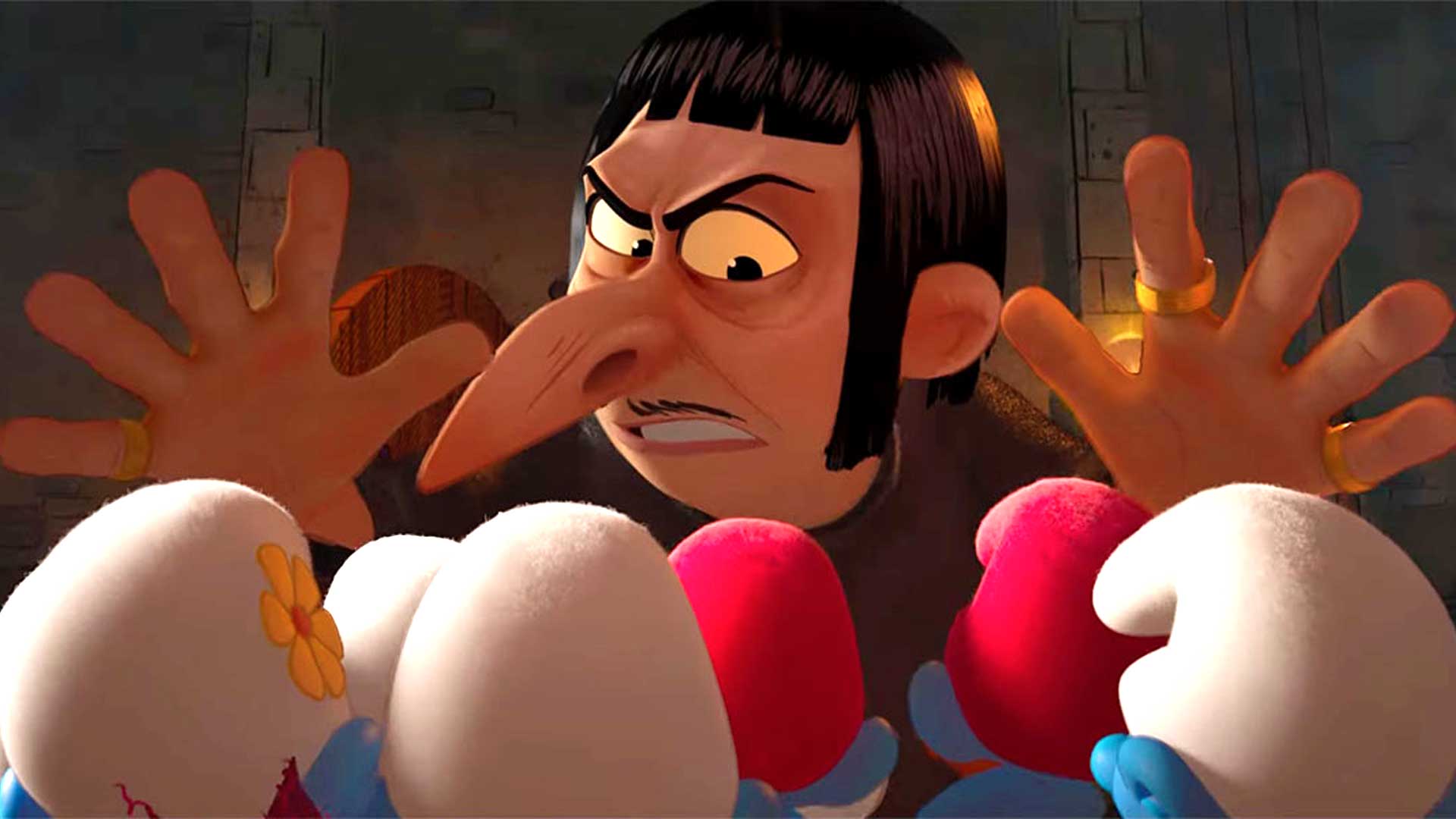
How do you think this new Smurfs movie differs from the older ones that came out around a decade and a half ago?
First of all, the animation style is completely different. It’s so much richer, painterly. It has this really gorgeous look to it where I think the previous ones were going more for realism to sort of fit it into the real world. This contrasts with the real world much more. It’s a musical. It’s just super fun. I think it’ll be interesting to see for the people who grew up with the movie as their reference what they think of this one. Hopefully they like it.
Moving on to X-Men ’97. Morph played a major role in the first season. What can you tease about Morph’s arc for the second season?
He’s in it? [Laughs]. Yeah, I’m proud to say that Morph was killed in the original animated series in the nineties, but he does not suffer that fate in this one, thankfully. Yet. [Laughs]. But what can I say? Morph’s journey in Season 1 of X-Men ‘97 was really about overcoming the trauma of the original series, reintegrating into the team, finding this chosen family, and pushing through trauma with wit and all of that. I think you’ll see just a continuation of that growth and that journey away from the awfulness of being killed, brought back, and mind controlled by a very evil villain.
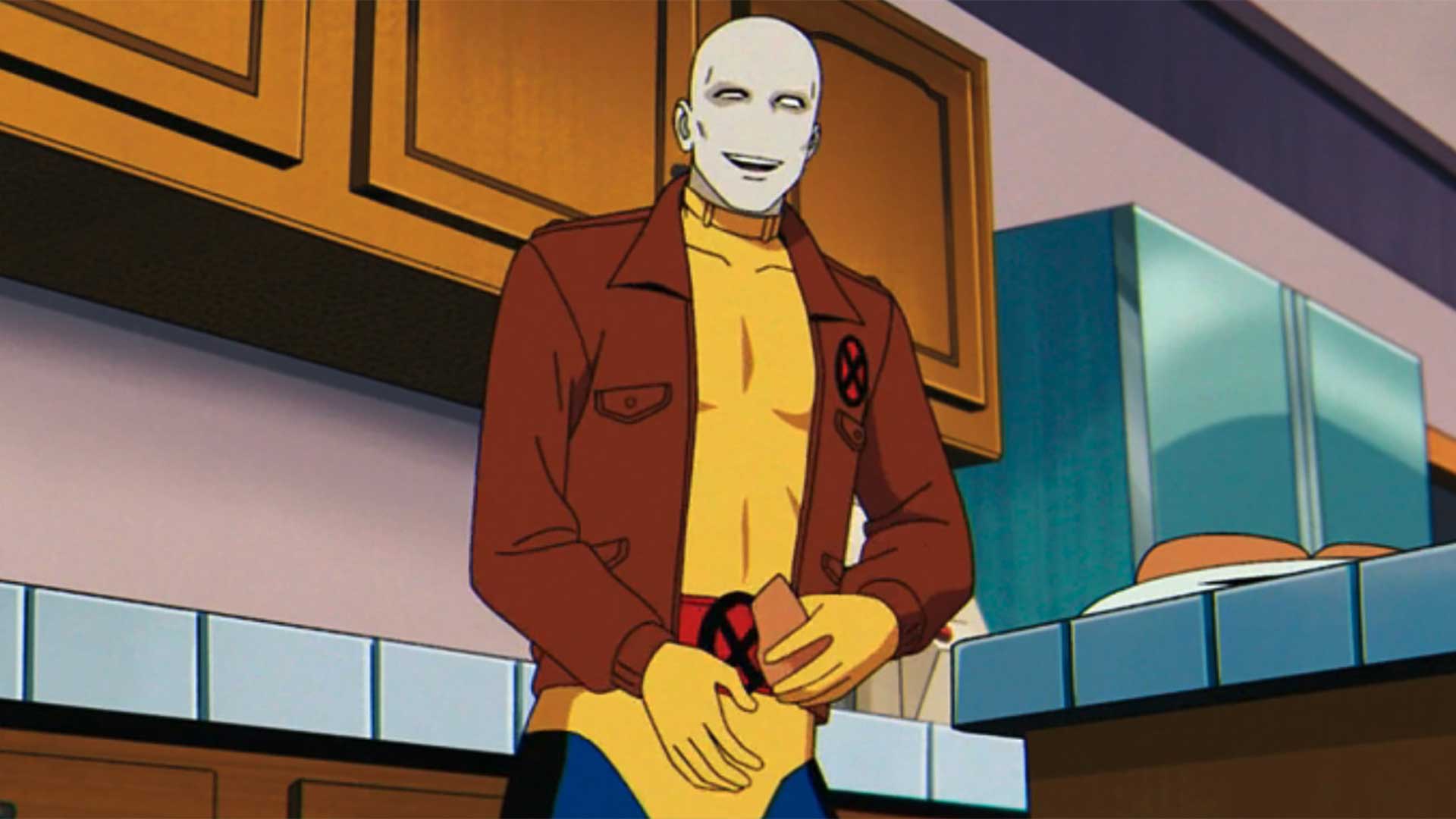
In the first season, there’s also that powerful scene with Morph admitting his feelings to Wolverine. It could make sense to anyone who watched the original show and saw how close they were. How do you see this developing, and do you see something further coming out of it?
The thing that I’ve always joked about is that I want better for Morph. [Laughs]. Wolverine is a great character, but he is a big old pile of damage, and I think Morph needs to have less of that in his life. So, I’d like to see Morph get with one of the other canon queer characters in the Marvel Universe, like Northstar, Iceman, Wiccan, or Hulkling.
More seriously, what I valued so much about Morph and Wolverine is less the unrequited love story – which I feel is oddly such a trope of the nineties to have a gay character pining after a straight character they could never have. To me, the real value that comes out of that relationship is the friendship between a queer and cishet character to establish that there are those really powerful, beautiful friendships where there is that person who is not queer and there is not a love story there, but they are such a powerful ally, which I think we need to see more of. I don’t necessarily think that there will be wedding bells for them [laughs], but I do think that in one way or another, Wolverine will always be important to Morph.
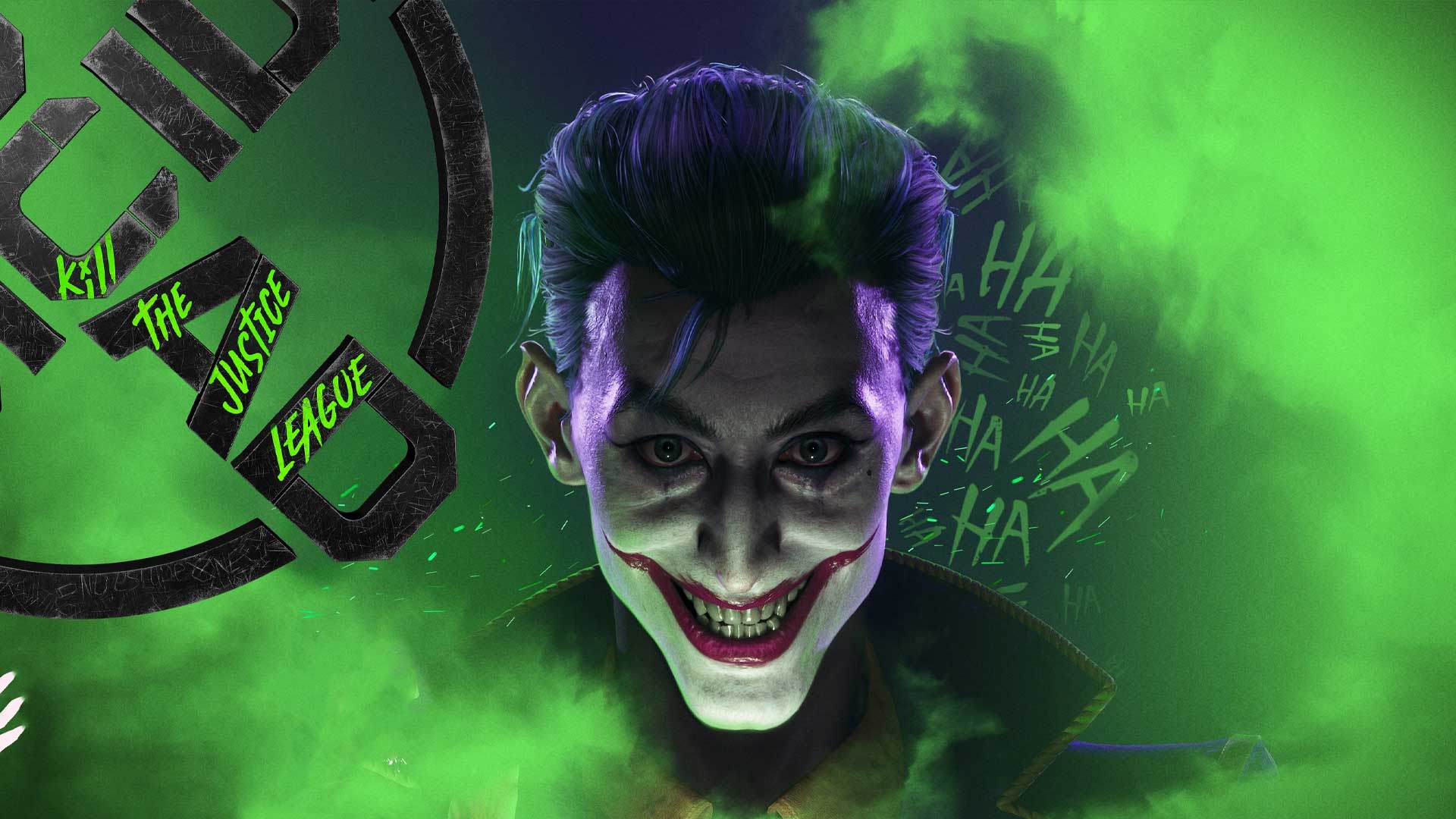
I enjoyed your performance as the Joker in Suicide Squad: Kill the Justice League. Technically, your Joker is different from Mark Hamill’s, because he’s from an alternate Earth, but how did it effectively feel to take over from Hamill as such an iconic character in the Arkhamverse?
Yeah, it’s bonkers. In the audition process, they were very specific that they did not want my take to be like Mark’s, which is both scary and freeing. Because as you said, you are entering a universe where Mark’s Joker existed, but you’re also supposed to put your take on it and have it feel just as referential; it’s supposed to hit all the buttons for the fans. The canon of Jokers is a field of landmines of excellent performances over the years that everybody has their favorite, and you’re always going to be compared to that. For a lot of people, it’s Mark, Heath [Ledger], Jack [Nicholson], or Troy [Baker].
I found a bit of freedom with him being an Elseworlds Joker that I really needed to push away from everybody else, and yet sprinkle in a little bit — I pull a little bit from Mark’s laugh, I pull it a little from Heath’s laugh, just to give it that authenticity. But he’s a younger Joker. He’s figuring out what kind of megalomaniac crazy person he wants to be, and he comes into a universe where there’s this previous Joker who is so evil. There is that sort of meta thing of I’m coming into this project where an incredible performance has existed, and this Joker is coming into a world where a very influential previous Joker existed, so there was a lot in there.
I also just played Joker in the new video game, DC: Dark Legion. There wasn’t any sort of canon, or like, “You can’t be this version, you can be this version,” or whatever. So, I really got to shape what I feel is my Joker, which is a little bit closer to Mark’s as well as John DiMaggio’s Joker. So yeah, I feel like this most recent Joker is the one that feels most akin to the one I would play. But as somebody who’s played a ton of legacy characters over the years, I enjoy the different boundaries that I get and parameters for making the characters mine.
Are there any other major characters you would love to voice?
Skeletor. He’s the last one. I played Loki in a web comic, which was a lot of fun. I played the Joker. I played a lot of the iconic villains that I love. As far as legacy characters that are still on the bucket list, yeah, Skeletor is the one I grew up with. The very first TV show I remember is He-Man and the Masters of the Universe. I never connected with He-Man or the muscle-bound heroes, but I always connected with the vaguely effeminate sort of cackling weirdo. Yeah, he’s my hero. So he is it. He’s the last one. And other than that, I wouldn’t mind playing an original character.
Another project of yours that you’re quite passionate about is QueerVox, which aims to help a lot of upcoming talent. Can you share more and tell us about some of your recent success stories you have seen with your academy?
QueerVox is a non-profit academy and community for LGBTQIA+ voice actors, which I started in 2021 during lockdown. It started out as an online class then built into a Discord community and an online talent directory. Now, we’re appearing at conferences and doing consulting work. I think there’s different barometers for measuring our successes. We have over 1,000 people in our directory. We have hundreds of people in our Discord and casting offices, from audiobooks to video games to animation, that all seek our talent and our consultations.
But honestly, at this time, I feel like our greatest successes right now are, one, we’ve just started this program called “Voice and Gender,” which is a series of classes to help people explore the different elements of their voice without attaching any sort of gendered language onto any of it. Just explore your toolbox, basically. Then after we’ve done that and you can see how things feel – what feels good, what feels not so good, what maybe feels like out of your range and all of that – then we’ll start attaching gender things to it. Like, okay, these are things that might be typically considered to be a more male sound in America or more females. Then, the actors have the ability not only to decide what elements of their voice they want to use in their daily life or their voice, especially for trans and non-binary actors, but also what tools in their toolbox they want to use to adjust for various characters that they might wish to play.
So, in this moment, when authenticity is still considered key, but being a queer person is also considered a liability, unfortunately, having the ability to shift in and out of gendered voices is going to be very important for people who want to build a longstanding career in this work as opposed to just always be typecast as the trans woman or something like that. I mean, there’s not enough role to build a career on that alone.
The other thing I would say is our community. All queer people just need community right now, and the feeling of safe space and the feeling of commonality in so much of the oppression that’s going on right now. I think we’ve been very successful in creating that.
This interview was edited for clarity.


